2023 Rockford University 3rd Annual Undergraduate Student Conference “Celebrating the Interdisciplinary Humanities”
Call for Papers
2023 Rockford University
3rd Annual Undergraduate Student Conference
“Celebrating the Interdisciplinary Humanities”
Friday and Saturday, March 31th and April 1st, 2023
In-Person and Zoom Presentations
The Department of Languages, Philosophy, Religion, and Cultures and the Department of Education at Rockford University invite you to submit a proposal (abstract) to participate in the 3rd Annual Undergraduate Student Conference “Celebrating the Interdisciplinary Humanities” to be held both in person and via Zoom, on Friday and Saturday, March 31st and April 1st, 2022. Students are invited to present their research papers in any area of the Humanities with special emphasis on interdisciplinary connections. This conference will discuss cultural, theological, literary, and philosophical inquiry across time periods, genres, and cultural traditions. We encourage students to participate by presenting papers about humanistic thought, literary production, performance, and/or theological writings over time. This is an invitation to discuss together how ideas, words, and cultures emerge, change, and are connected. Presentations, abstracts, proposals, and papers in either English or Spanish are welcome.
Presentations can be from any discipline and about any area of the Humanities. Students will present their work in the form of 10-to-15-minute oral presentations (the equivalent of a 4-6 page double-spaced paper) as part of a traditional panel with a faculty member and undergraduate student as discussants. Students can submit individual proposals or proposals for panels of 3 or 4 papers. All participants and attendees will be asked to register for this two-day event, but registration is free.
The three best papers presented will be awarded as follows:
- First place award: $150 and publication of the paper in our academic journal Deinós.
- Second place award: $100 and publication of the paper in Deinós.
- Third place award: $50 and publication of the paper in Deinós.
Please note: The awarded students will have until June 1st to submit their papers to be published.
Papers addressing, but not limited to, the following topics are welcome:
-
World Literature and the Arts
-
Global Histories, Art Histories
-
Literature, Politics, and Emotions
-
Theater and Performance Studies
-
Literature and Art in Ancient Greece and Rome
-
Slavery in Antiquity
-
Gender in Antiquity and Today
-
Classical Reception
-
Graphic Novels
-
Film Studies
-
Reception Studies
-
National Identity Issues in Today’s World
-
Migration Studies, Memory Studies
-
Etymology and/or Vocabulary Building
-
Spanish Linguistics
-
Hispanic and U.S. Latino Literature and Culture
-
Philosophy (Ethics, Logic, Applied Philosophy, History of Philosophy)
-
Religious Studies and World Religions
-
Connections between Religion and Literature, Pop-culture, Science, or Society
-
Scripture and Interpretation
-
The Humanities in K-12 Classrooms
-
Cultural Identity and Bilingual Education
-
Interdisciplinary approaches to the Humanities (Humanities and Medicine, Humanities and Business, Humanities and Sports, Natural and Social Sciences and the Humanities, etc.)
Individual presentation proposals (abstracts) of no more than 250 words must be submitted via email by February 15th to conference organizer Dr. Xabier Fole Varela at xfolevarela@rockford.edu. Please be sure to include the following information.
For individual proposals:
-
Name of the student and contact information (email address)
-
Affiliation - what college or university the student attends
-
Title of the presentation
-
An abstract of no more than 250 words
Panel proposals of 3 or 4 presentations should be submitted with the following information:
-
The title of the panel
-
The organizer's name and contact information (email address)
-
The names of the panelists and their contact information (email addresses)
-
Panelists’ affiliations - what colleges or universities the students attend
-
Abstract of each paper in the panel - no more than 250 words each
For more information, please contact conference organizer Dr. Xabier Fole Varela at xfolevarela@rockford.edu.
